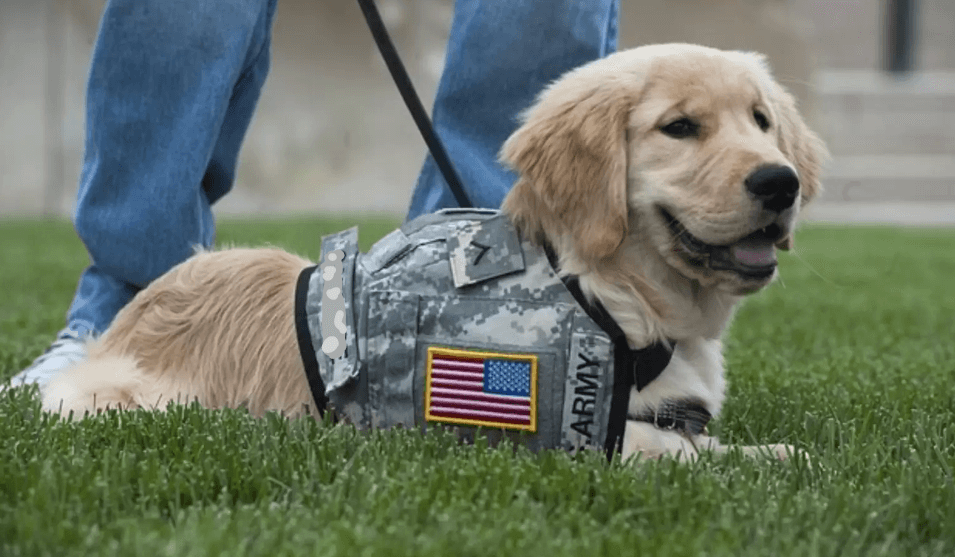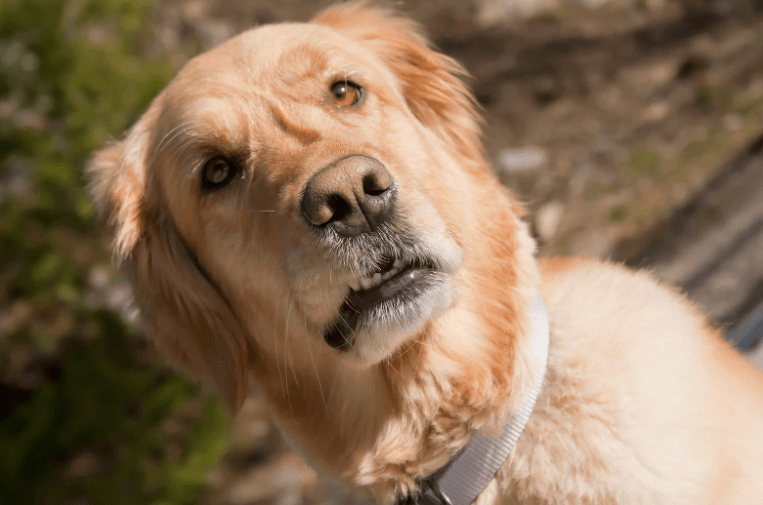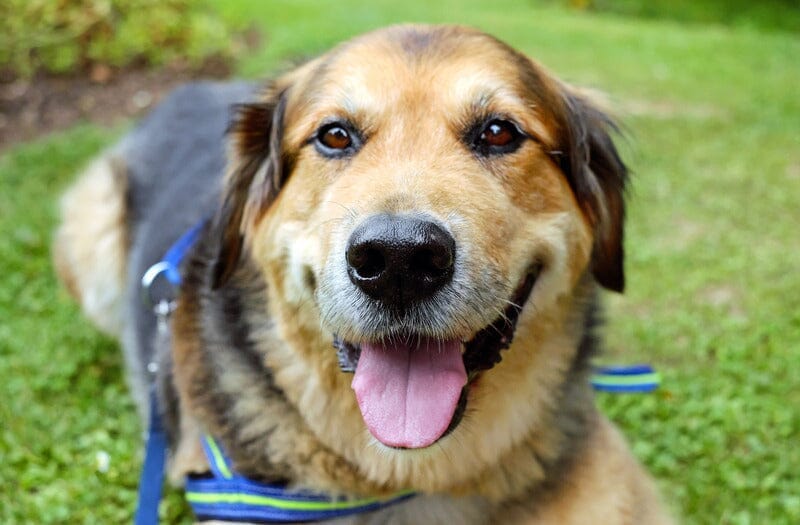Dogs are amazing companions, and capable of so much more than we even realize. At BestLife4Pets we honor the dogs who have worked hard to be recognized as Certified Service Dogs for the men and women who have been injured physically or emotionally in their selfless service to our country.
Table of Contents
- 1. What is a Service Dog?
- 2. How do Service Dogs help Veterans with PTSD or Other Mental Health Challenges?
- 3. How do Service Dogs help Veterans with Traumatic Brain Injuries?
- 4. How do Service Dogs Help Veterans with Physical Disabilities?
- 5. What are the Challenges of Having a Service Dog?
- 6. Does the VA Cover Service Dogs?
- 7. What are some Organizations that Provide Service Dogs to Veterans?
1. What is a service dog?
Service dogs are dogs that are specially trained for specific jobs to help people with disabilities. For example, if someone has trouble walking, a service dog can help by guiding them or carrying things. Some service dogs even help people with mental health challenges, like Post Traumatic Stress Disorder (PTSD), by offering comfort when they’re feeling anxious or stressed.
Service dogs may also be trained to alert their owner if something is wrong, such as if they're about to have a seizure, or to alert to a dangerous blood sugar dip or spike for diabetic patients.
Due to their specialized training, service dogs are allowed in places that pets are not allowed such as stores or restaurants.
Service dogs have the benefit of being a fabulous trusted and constant companion, and also being capable of making life safer and more comfortable for the people who need them.
2. How do service dogs help Veterans with PTSD or other mental health challenges?
Service dogs are a wonderful support for veterans with Post Traumatic Stress Disorder (PTSD) or other mental health challenges. When a veteran feels anxious, scared, or overwhelmed, their service dog provides comfort and support. Some dogs are trained to sense when their person is having a panic attack or flashback, and will gently nudge them or lick their face to help them feel safe. These dogs may be trained to remind their person to stay calm by doing things such as bringing them a toy or sitting close for support.
Having a service dog helps veterans feel less lonely and more confident, especially in stressful situations. They help veterans feel safer in public by providing a sense of security. Mental health service dogs make life for their veteran better by being a loving companion and a helper.
3. How do service dogs help Veterans with traumatic brain injuries?
Many veterans have experienced Traumatic Brain Injuries (TBI) due to the risks taken in service and combat. These injuries are caused by many different injuries such as falls, bullet wounds, blasts or explosions, vehicle collusions, and other hazards.
The injuries can be anything from a mild concussion that is recovered from fairly quickly to an injury that makes it challenging to function from memory and concentration issues, or issues with seizures and loss of consciousness.
These dogs are trained to assist with things like balance, guiding their owner if they get dizzy, or helping them remember important tasks. For example, a service dog can remind a veteran to take their medication or help them stay on track with their daily routine. Service dogs may be trained to help calm a veteran down if they feel confused or upset.
A service dog will help during a medical or emotional emergency, aiding with memory related tasks, and providing security in public places. A service dog is able to pick up on the subtle changes in a handler’s mood, heart rate, and stress levels making it able to intervene.
Service dogs trained to for assistance with Traumatic Brain Injuries help with the hardships of living with traumatic brain injury by providing independence and confidence to their humans.
4. How do service dogs help Veterans with physical disabilities?
Service dogs are amazing helpers for veterans with physical disabilities. These uniquely trained dogs are capable of picking up prosthetics, alerting their person to sounds when they have hearing loss, and help with balance for them when needed if walking or standing. Service dogs are also sometimes trained to pull a wheelchair.
These dogs also help to open doors, pick up things that have fallen, or even turn lights on and off. They might be trained to help their person carry things, like bags or groceries.
Dogs specially trained for physical disabilities make daily tasks easier and help veterans be more independent.
5. What are the challenges of having a service dog?
While the many benefits of a service dog are obvious, there are certainly a few challenges. First, service dogs need specialized training for their specific role, which takes time and patience. Even after training, the dog needs to stay focused and follow commands, which can be tricky sometimes. Another challenge is that service dogs need lots of care, like regular walks, feeding, and checkups.
The biggest challenge most service dog handlers face is due to public confusion over the rules regarding service dogs. It is extremely important to know your rights and the laws regarding service dogs for housing, air travel, work, and any other public places you may need to go. Be well informed to politely educate others if needed, to defend yourself and your pup when encountering possible issues in public.
6. Does the VA cover service dogs?
The Department of Veterans Affairs (VA) provides some benefits for service dogs, including veterinary care and equipment:
- Veterinary care: The VA covers the cost of veterinary care, including medications, office visits, and dental procedures. However, the VA does not cover over-the-counter medications, food, treats, or non-sedated dental care.
- Equipment: The VA covers the cost of equipment needed for the dog, such as a harness or backpack.
- Travel pay: The VA provides travel pay to an accredited training program.
To qualify for VA benefits, veterans must:
- Meet with their health care provider to discuss their needs
- Have a diagnosis of PTSD, TBI, or MST
- Have an honorable discharge
- Be a veteran of the United States Armed Forces
The VA does not provide service dogs, but they will refer veterans to accredited organizations to obtain one. The VA will also review each service dog request on a case-by-case basis.
PAWS for Veterans Therapy Act (H.R. 1448) in 2021 allowed the VA to provide service dogs to veterans with mental illnesses who do not also have mobility impairments and establish a pilot program on dog training therapy for veterans.
7. What are some organizations that provide service dogs to veterans?
As our military veterans have served us well, we are thankful that there are many organizations dedicated to providing veterans with their needed service dogs.
Most of these organizations are dependent on donations, and this is a wonderful cause to donate to.
Here are a few examples:
The need for service dogs for our veterans is always higher than the available trained dogs. If you love dogs and would wish to be a chance to be a part of helping a veteran in need, consider reaching out to these organizations to see how you may help, whether by training a dog or simply donating.
Not only on Veteran's Day for our treasured United States Veterans or Remembrance Day for our Canadian Veterans, but all year long, we are thankful for those who chose to serve our country, and thankful for the dogs who work to love them and support them every day.
For more reading on amazing animals that go above and beyond the call of being a pet, enjoy this blog:



